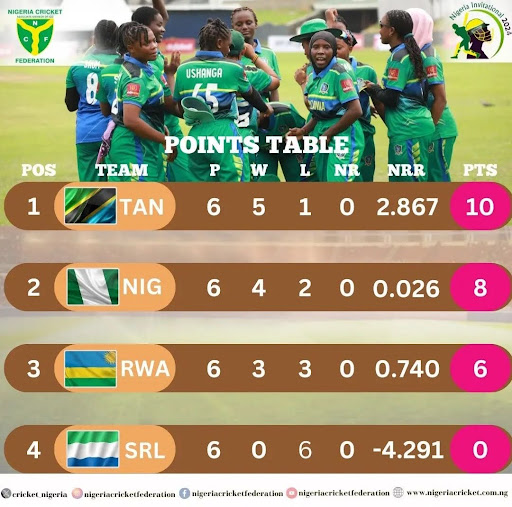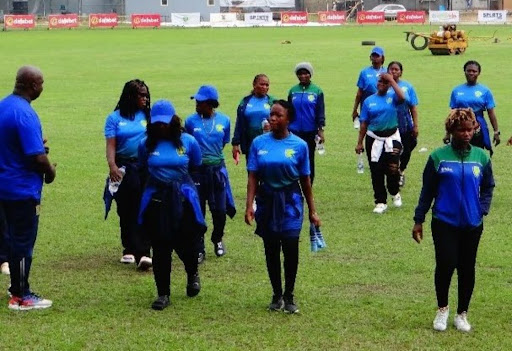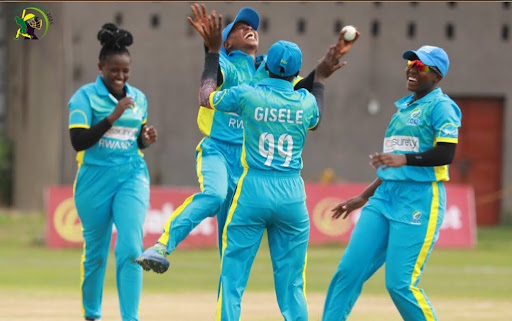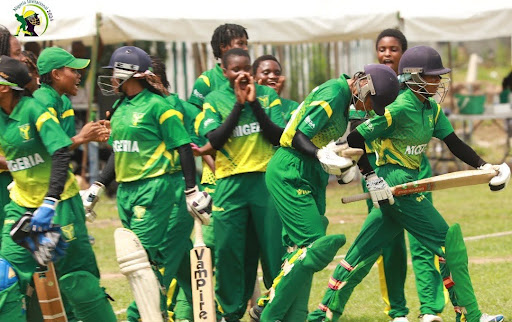
Last week, we witnessed the culmination of transitions. In varying degrees and differing translations. Teams that would be flying the flags of their countries transited through Nigeria's commercial nerve centre in order to position themselves better for the bigger task at the Accra All Africa Games. We witnessed the trophy transition for the first time to a country that is neither Nigeria nor Rwanda. Tanzania came into the tournament for the first time and scooped the esteemed trophy away from the grasp of defending champions Nigeria and one-time champion and perennial finalists Rwanda. The Nigeria Women's Invitational has come and gone, and as we usually do, we bring you some talking points from what is gradually becoming Africa's leading women's cricket tournament.
For the first time since their participation, Sierra Leone failed to win any game and finished at the bottom of the round robin standings. This may be due in part to the fact that the other teams that they customarily beat were not present at this installment of the showpiece. Ghana, Cameroon and The Gambia were all absent and that left Sierra Leone as the lowest ranked side at the tournament. Another factor could be that their side, though packed with experience, may be aging just a bit. They appeared to have the oldest squad in the tournament and so were not as agile in the field as they would have liked to be. A lesson will be for them to start bringing in younger ones so that they can benefit from the current members of the squad before they start leaving the stage.

All is not doom and gloom however, as this outing gave them a proper assessment of their team when pitched against higher ranked teams in the game. They even gave the Tanzanians a bit of scare when they had them in the second game for 72-5 but they were unable to match the bowling performance with an adequate response with the bat. This will in no little way add to their confidence and their growing understanding of the game.
Rwanda left Kigali with vengeance on the top of their to-do list but it turned out a little differently than they planned. They lost to Nigeria in last year's final and it would have been sweet to get one back over their rivals but the West African powerhouse was not about to relinquish the bragging rights to the East Africans. Blending their team perfectly with youth and experience, the Rwandan side came into the tournament with a few new faces and when they defeated Tanzania in their opening game, they must have been spurred on to think that they were in the best position to take home the trophy. Tanzania was superior no doubt, but against Nigeria when it seemed a bit even, they folded under the pressure.

If they had taken the fight a little more to the Nigerians, they may have been able to pip them to that second position. They will get another chance to slice off their pound of flesh when the two teams meet again at Kwibuka later in the year.
Call it home advantage, Nigeria made sure to use every thing that could work in their favour. The weather, the ground and team balance came in handy for the Female Yellow-Greens. Even the crowd was expectedly partisan as the Lagos dwellers were there to support their darling team. And that is where the pressure was - playing in front of their baying supporters meant that they had to be at their best ever best. Not a single margin for error. They were expected to win every game and win effortlessly. Such ambitious expectations but they were going to be playing against a Tanzanian side that was ranked several places above them. So even if they got past Sierra Leone and Rwanda with ease, trying to flip Tanzania over would be a bridge too far, home advantage or not.

Finishing in second place was perhaps the most realistic target for them and they made sure to hit that target dead on. Even though they have lost their title, they can be comforted with the fact that they were able to assess their readiness for the continental showdown in Accra.
As the news broke that Tanzania was going to be part of the competition, many enthusiasts were ecstatic. It was proof that the competition had risen in stock and high ranking countries are starting to believe in what West Africa has to offer the world of cricket. Apart from the opportunity of seeing a new participant at the event, it was also going to present sterner tests to all the nations participating. Tanzania has a reputation that precedes them but had a disadvantage coming into the tournament in that they were the only team who had not had a feel of the competition and of the grass turf at the Tafawa Balewa Square in Lagos. They were still trying to figure out how the surface was playing when Rwanda quickly gave them a swift lesson in how cricket is played in Lagos.

That opening loss must have set them straight as they went on to win their remaining games on their way to claiming the title in their debut participation.
When we watch competitions and see players give their all on the field, it is easy to take things for granted and think that the showpiece would have been possible without several formidable teams of committed and dedicated individuals behind the curtains, making sure that the wheels never stop turning. Nigeria has positioned herself in Africa to be a force to be reckoned with when it comes to both developmental and women's cricket. Apart from Kwibuka, there has not been any other competition on this continent dedicated solely to women that has run consecutively for this long. So, whether the administrators in Nigeria realise it or not, the bars have been raised and the expectations are always high.
Therefore, there is the need for Nigeria's cricket administrators to maintain the level of professionalism that is expected of such a prestigious tournament. Some of the tales that came of this edition were a little unsavoury. Though it would be unfair to judge the efforts of the Federation by the actions, inactions (and in some cases, sheer negligence) of whoever was calling the shots in the organising team, the Federation would still be the talking point of the parties (local and foreign) who happened to have been at the receiving end.
Seeing how uncoordinated some of the processes were, it suggested that the person (or maybe group of individuals) in charge left so many things to chance. Maybe because the previous editions have been running on what seemed to be autopilot. A few coordination points lacked cohesion and a few others were either left unattended or underestimated in importance.
For Nigeria as a whole, they have since transitioned to be the traditional home of female cricket in Africa. And the administration of the Nigeria Cricket Federation has become a beacon of progress in female cricket on the continent. They have been for a while and they will continue to be for a while longer. That is what we would like the focus of every stakeholder to be. If there is anything to be certain of, it is their determination to maintain the lofty standards that they have come to be known by. So, to all the parties that this year's event may have left unpleasant experiences with, we are assuring you that there will be absolute professionalism in the next edition. So, see you all in Lagos in 2025.
